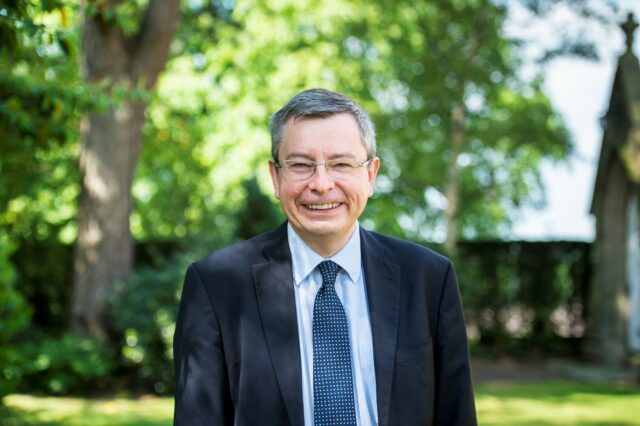Blog
‘The Teachers’ Pension Scheme is no longer one of life’s certainties’

Dr Simon Hyde
HMC General Secretary
Read the blog
Schools who have stepped outside the TPS may now be free to offer more attractive packages, writes Dr Simon Hyde.
Benjamin Franklin’s two certainties in life, death and taxes, used to be accompanied by a third — at least as far as members of the teaching profession were concerned: the Teachers’ Pension Scheme or TPS.
The TPS has a number of distinct advantages. It is a gold-plated pension scheme with unrivalled benefits, if limited flexibility. Its chief advantage, at least for most teachers, is that they don’t really need to understand that much about pensions. When seeking promotion or changing schools or jobs, terms and conditions are relatively straightforward to understand. If the pension is the TPS, even the least financially confident can compare salaries and decide whether what is being offered is reasonable or not.
This comfortable world is now changing. With the increase in the employers’ contribution from 16.48 per cent to 23.6 per cent from September 2019, a growing number of independent schools have been forced to reconsider their position in the scheme. With a further actuarial readjustment due in 2023 and a government balance sheet with more red figures than black ones, the numbers leaving the scheme (currently 227) seem bound to continue to grow. Some schools have introduced or are considering hybrid arrangements where staff trade salary for continuing membership of the TPS. Whatever the case, it is likely that the future will be more complicated.
Well educated professionals are of course better placed than many to cope with these new challenges. There are, after all, some potential advantages to more portable and flexible pensions, especially in a world where retirement at 67 (or more) looks unattractive and, potentially, lethal. The introduction of annual and lifetime allowances has already made an industry out of what was once straightforward, and teaching staff tempted to go overseas have long been used to considering the pension implications.
Unusually for a public sector scheme, the TPS has always operated with a place for those working in the independent sector. For years this reflected the movement of teachers between sectors either to broaden their experience, to seek promotion or for more domestic reasons. There will inevitably be a concern that any move away from the TPS might inhibit or even end this exchange of personnel between sectors or even within the independent sector itself as schools either leave or remain in the TPS. The impact of change on recruitment is still an unknown.
However, whilst teachers may not be entirely immune to the temptations of Mammon, money is rarely their primary motivation. As schools have become more ingenious in attracting and retaining high-calibre staff, so the range of benefits on offer has grown. The key benefit for many is an attractive and supportive working environment alongside the ethos and reputation of the institution under consideration. It would be a mistake to underestimate these factors.
Schools outside the TPS may well be free to offer more attractive packages. Higher salaries, performance bonuses, health care or a reduced teaching load might allow greater options, particularly if the need to get on the housing ladder is considered a more immediate priority than income in retirement. The TPS is very much about jam tomorrow, but if the suspicion grows that the benefits offered by the TPS are likely to be eroded over time, its attractiveness lessens.
The Teachers’ Pension Scheme has survived longer than most defined benefit schemes. Established in the 1920s as a notional fund (even then the costs of a funded scheme were prohibitive), the TPS has constantly had to evolve. The pace of change has accelerated over the last two decades as contribution rates have increased, retirement ages have risen and career average has replaced final salary as the basis for the pension’s calculation. It would not be unreasonable to surmise that we have not seen the last of these changes.
Planning for a comfortable retirement remains important for all, but it is probably going to get more complicated and require a greater investment of time and effort for those wishing to teach in the independent sector. As always, early investment is likely to pay off and, whatever their governors’ decisions on the TPS, schools will wish to ensure that their teaching staff is well supported and appropriately informed as we move into a more mixed economy.
The link between death, taxes and pensions remains as strong as ever, but perhaps Franklin was right after all: only two are certain.